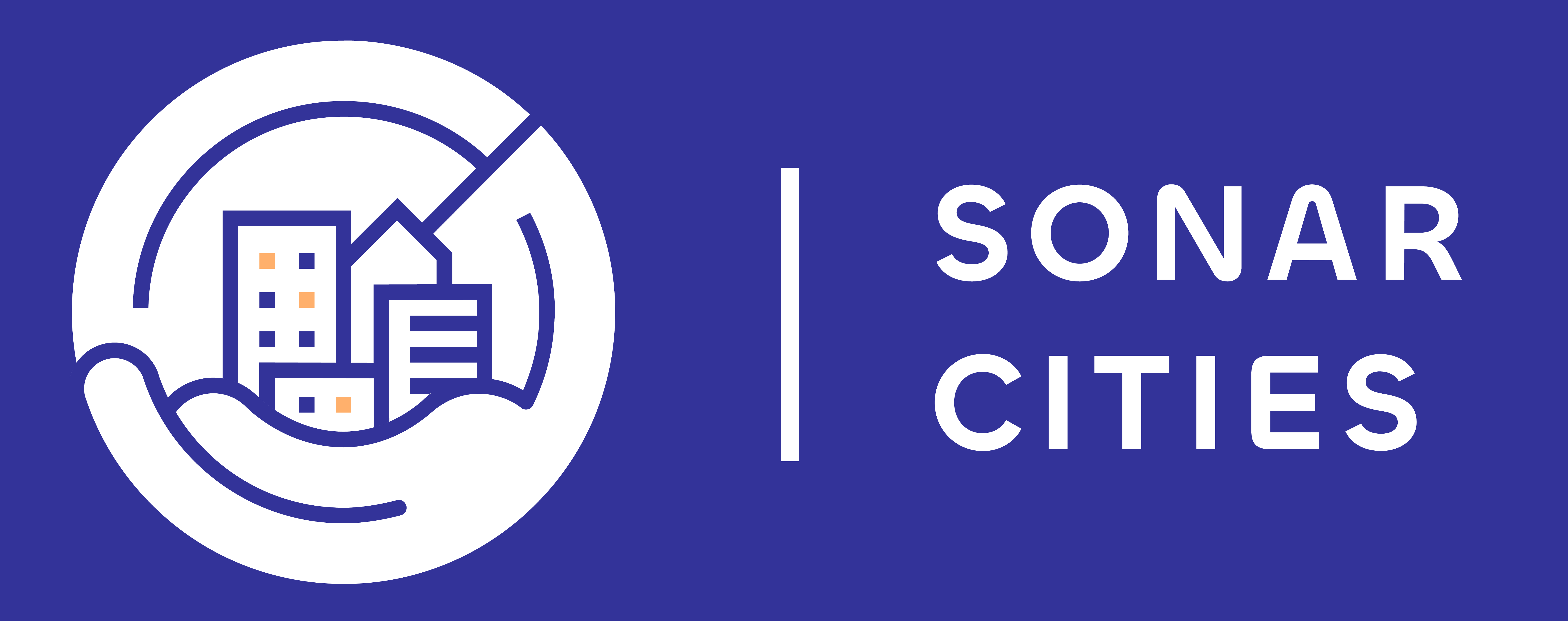Overall Objective
Our goal is to render Europe’s cities more resilient in health emergencies and disasters through the development and implementation of community-based adapted tools for people facing vulnerabilities – at risk of being marginalized or excluded because of low income, gender, age, ethnicized or racialized identity, chronic illness, disability – who may suffer adverse health consequences as a result.
Sonar-Cities: vision, mission and approach
Vision
Mission
Approach
Specific objectives
Analyze vulnerabilities during emergencies
Co-develop Sonar-Cities toolkits
Pilot the Sonar-Cities toolkits
Strengthen disaster preparedness
Disseminate and support uptake of Sonar-Cities toolkit
Methodology
The Sonar-Cities project is structured on five methodological approaches
Assessment: Documenting and analyzing the risks, capacities, resources, needs, and priorities of people experiencing vulnerabilities prior to and during crises. Retrospective case studies of disasters and health emergencies in six cities will be conducted to facilitate a reflection on and response to future needs.
Engagement and co-creation: A local stakeholder group will be established to inform the project. Limited involvement from organizations representing vulnerable populations is often observed, and this issue will be addressed by engaging representatives from diverse publics and structures.
City pilots of toolset: City pilots will deliver and evaluate the Sonar-Cities toolset in the six cities where retrospective assessments were conducted. The toolset will be designed to meet the unique needs and challenges faced by selected urban vulnerable populations during crises. Interviews, focus group sessions, and participant surveys will be employed, along with user statistics generated by the Sonar-Cities Knowledge Platform.


Knowledge platform and capacity building: The platform will serve as an online repository of the project’s key information and will facilitate a knowledge-sharing culture, ensuring accessibility for researchers and participants. Webinars for first responders and authorities will be held, online training will be developed, and health literacy video podcasts will be created.
Toolset dissemination: An implementation manual for toolset users will be developed. This practical resource will reflect experiences, report success stories, and provide guidelines.
Discover our consortium
Find out more about the 12 international partners involved in the project
